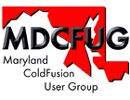 |
 |
 |
|
|||||||||||||||||
 |
|
|||||||||||||||||||
|
 Speakers
Speakers
Charlie Arehart Jo Belyea-Doerrman Tim Buntel Raymond Camden Christian Cantrell Sandra Clark Joey Coleman Sean Corfield Robert Diamond Michael Dinowitz Steve Drucker David Epler Joseph Flanigan April Fleming Ben Forta Shlomy Gantz Mark Gorkin John Hamman Hal Helms Simon Horwith Larry Hull Jeff Houser Chafic Kazoun Matt Liotta Tom Muck Rey Muradaz Nate Nelson Samuel Neff Jeff Peters Bogdan Ripa Neil Ross Margarita Rozenfeld Stephen Shapiro Michael Smith Geoff Snowman Jeff Tapper Dave Watts
|
|
||||||||||||||||||
|
|
| 1 | 2 | 3 | 4 | 5 | 6 | 7 | 8 | 9 | 10 | 11 | 12 | 13 | 14 | 15 | 16 | 17 | 18 | 19 | 20 | 21 | 22 | 23 | 24 | 25 | 26 | 27 | 28 | 29 | 30 | 31 | 32 | 33 | 34 | 35 | 36 | 37 | 38 | 39 | 40 | 41 | 42 | 43 | 44 | 45
Back To Interview list In this CFUN-04 interview, Michael Smith quizzes Larry Hull, NASA Accessibility Engineer, on disabled user experience and issues of accessibility. Michael Smith: I have often wondered when designing accessible web sites what the user experience was really like for disabled users. How will I learn this at your CFUN talk "How disabled people use the web" in the Accessibility track? Larry Hull: You are not alone by any means. Web developers try their best to design accessible web sites but wonder (or should) what the experience is really like for disabled visitors. In my web accessibility training courses, I've occasionally been able to arrange for a live demonstration by a screen reader user and used a short video clip when a live demo hasn't been possible. However, one individual using one specific assistive technology presenting his or her particular problems accessing the Web falls a little short of the ideal. MS: And you have something better? LH: Fortunately, the California State University at Fresno last year released a short video with four faculty and student computer users with disabilities demonstrating and discussing several different technologies. In my talk, I show the video, supplement a few of their comments providing some specific tips for addressing the problems, discuss the different set of problems facing those users with cognitive disabilities, and offer some suggestions for making Web sites more usable by everyone. MS: What kind of tools do you cover? LH: The users in the video demonstrate a screen magnification software package called Zoom Text; the two major screen readers, JAWS and WindowEyes; a refreshable Braille display; and a voice recognition software package called Dragon Naturally Speaking. These tools are a representative cross-section but there are other assistive technologies. In my presentation, I demonstrate and discuss the accessibility features built into Windows XP. These features can benefit aging computer users with changing physical abilities. MS: Amazing! Does a screen reader really let a blind person surf the web? If so, how? LH: Yes, someone with a vision disability can use a screen reader to interface with a browser and surf the web. There are alternatives, such as refreshable Braille displays, that people who are blind can use to access content from their computer. As for how a screen reader works, do you want the long, technical or the short, less-detailed explanation? MS: Short will be fine. LH: OK. Screen readers present the text and text equivalents found on a web page as a stream of characters to a speech synthesizer. The name comes from the early days of personal computers when a screen reader literally read the 80x25 display buffer to speak what appeared on the screen. With today's graphical user interfaces, screen readers have had to become a lot smarter and web site designers have had to build accessibility into their sites to ensure these sites are usable by people with disabilities. MS: That sounds like it's complex to design a sites well. LH: Actually, designing in or adding accessibility to an existing site is often a fairly straightforward task and frequently makes a site more usable by everyone. I'm not saying there are no complex issues but many accessibility problems seem to reflect a simple lack of understanding of how people with disabilities use the web. MS: Will you have any tips for programmers who want their sites to be accessible? LH: The users in the video and I provide some design tips. Also, other speakers will be addressing some of the complex issues, e.g., creating accessible forms and data tables. MS: Is accessibility a big issue where you work at NASA? LH: A big issue for all Federal agencies, not only NASA, is a law called Section 508 that requires agencies' electronic and information technology be accessible to people with disabilities, whether those people are employees or members of the public. MS: Can you tell us a little about Section 508? LH: Section 508 is technically the first Internet accessibility standard. Although the W3C Web Accessibility Initiative Guidelines existed previously and were used in developing the Section 508 web accessibility rules, these guidelines were not written as standards and the W3C Web Accessibility Initiative is a voluntary body with no regulatory power. As an instructor for several Section 508 training courses, I can tell you more than you perhaps want to know, but Section 508 is not the subject of my CFUN presentation. MS: Thanks for clearing that up. I will look forward to your presentation! |
 |
|
|||||||||||||||||
| Home | Topics | Speakers | Directions | Spread the Word | Register |
© Copyright TeraTech Inc 2003
405 East Gude Drive Ste 207 Rockville MD 20850
301.424.3903 Fax 301.762.8185 www.teratech.com
Please send comments/questions to [email protected]
For sponsorships or registration, please send comments/questions to liz-cfun04 (at) teratech.com


































